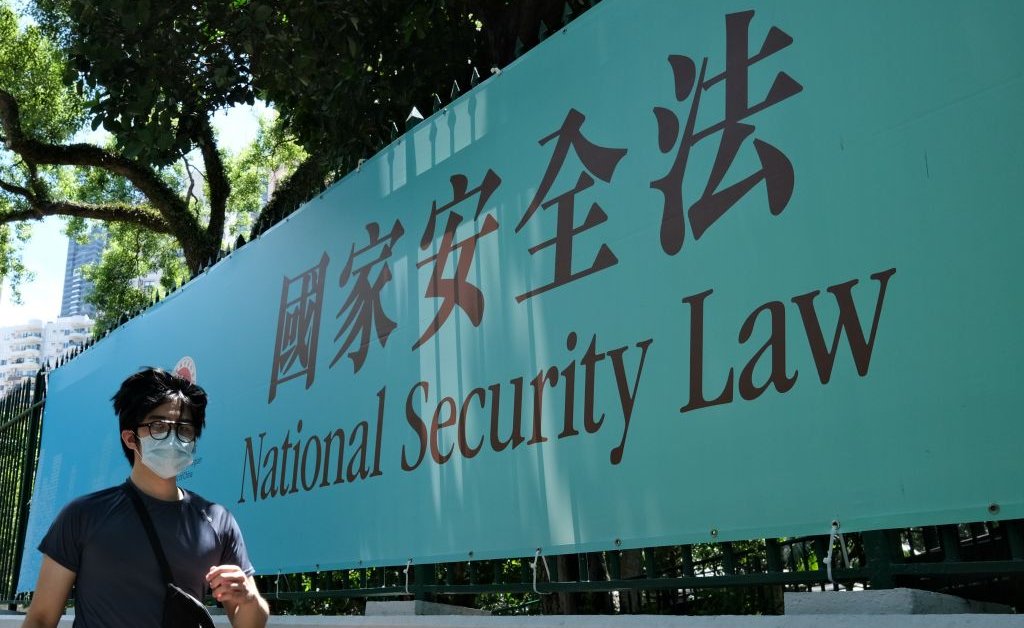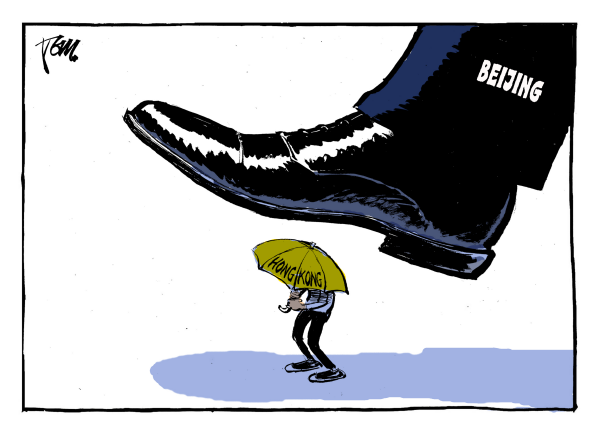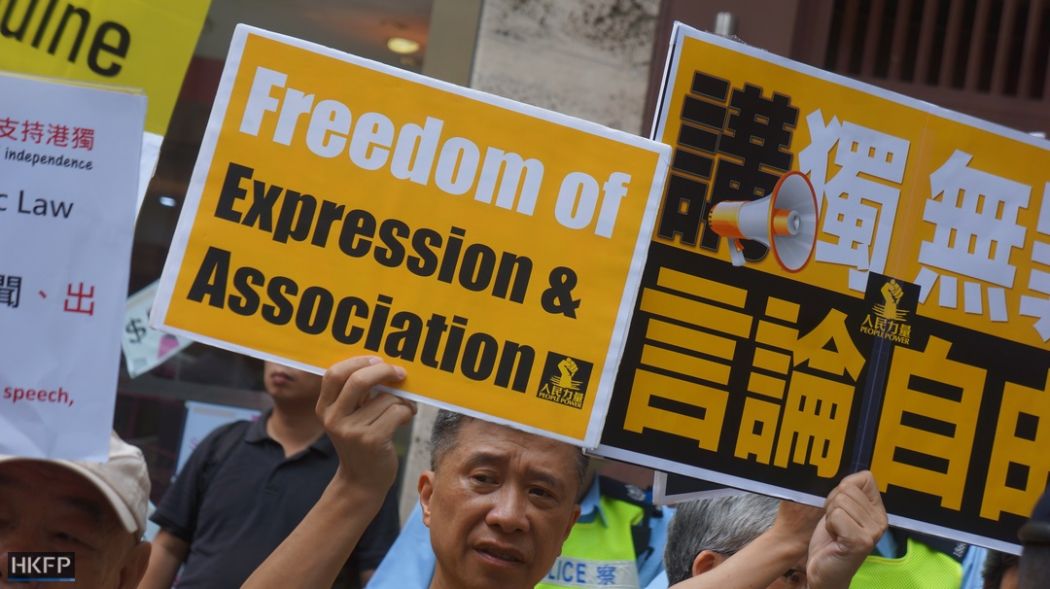

In May of 2020, Beijing worked on a draft of the national security law, which was passed on June 30th, 2020 without Hong Kong citizens knowing. Effectively, this law overrides Hong Kong law, and states that trials can be conducted in the mainland, even for non-residents. It criminalizes pan-democracy candidates by allowing the CCP to shut down any kind of opposition.

Prior to 1997, the British and Chinese tried to negotiate a security law, which was required to be implemented by Article 23 of the Basic Law. At the time, Hong Kong voted not to include the law due to concerns about freedom.
Again in 2003, there was an attempt to pass a security law, but it failed due to fervent activists who were concerned about their freedom.
Maybe if it was passed then, there would be more modest measures, like police being able to control the streets, and protect against terrorism. But because it wasn't in place during the 2019 protests, Beijing felt threatened and had a deep urge to pass a security law once and for all.

The security law is a complex issue, because after 9/11, countries became a lot more concerned with their national security. Right in the face of terrorism, the US had to pay for the war on terror, and invest in security.
Similarly, when the peaceful protests turned violent in 2019-2020, many people felt insecure about voicing their opinions out of fear, and it became imperative that the national security law comes in to protect institutions.
In other words, the enforcement of the law is what is being debated, not whether it should or should not be implemented.

At the most basic level, there is the "yellow" camp, who are pro-protest, and the "blue" camp, who are pro-China and pro-Police. The pro-protest camp is angry that no citizen saw the law before it was implemented, and the pro-China camp is upset to see the protests, and they accept the national security law because they want stability.
Deng Xiao Ping once said that "[China] should have faith in the people of Hong Kong, who are capable of administering their own affairs". Before 1997, national security was for the British interests, to oppose China. But after 1997, China changed and became more open-minded due to Ping.
Things changed yet again when Xi Jinping came into power, who wanted to control Hong Kong more than ever. The point is that the national security issue is a shifting geopolitical problem that depends on the relationship between Beijing and Washington, DC. If their relationship is doing well, then Hong Kong does well; however if their relationship is not so good, Hong Kong suffers. Hong Kong is the collateral damage, caught between two giants trading punches with each other. Ultimately, this is a bigger issue than how Hong Kongeres behave; it isn't entirely in their control.

How did Hong Kongers react to this law, as some western leaders decided to allow Hong Kongers to move in, such as Boris Johnson among others?
The people of Hong Kong have a history of acting with a "flight" response. Hong Kong is a unique place where people from the mainland have historically escaped China's poverty and messy politics, to come to a new world of both Western and Eastern influence.
As a result, Hong Kong is a self-selected population of escapees who are used to migrating from place to place during times of trouble. Traditionally, they've moved to West Britain, the United States, Australia, and so on.
Thus, it is likely that more and more Hong Kongers will move, with the ever-increasing threat of crackdowns on freedom. Even so, being an immigrant is never easy.

The United States financial system depends on Hong Kong's currency, and many investments within Hong Kong's business scene. And because businesses prefer less volatility, the politicization and national security concerns may hurt the markets. For example, after 9/11, the US invested lots of money to trace terrorism and impose sanctions, which made things volatile and put equities at risk.
With the key countries like the US, Europe and Japan watching the situation, Hong Kong's status as an international station for business may become lessened. Already, Hong Kong, one of the richest Asian cities, had a hard time solving its inequality and housing problems because of the politics around national security. To preserve foreign investment, less emotion and more reasoning is needed.

It is important to understand that "National Security" is whatever threatens the country. More specifically, China's perspective is that separatism, or calling for independence, is an unacceptable threat. They worry that the uprisings in Hong Kong could inspire similar movements in the mainland, which would loosen the CCP's absolute grip on its people.

Because of these separatist concerns, Xi Jinping drew a clear line for what one can and cannot say in Hong Kong. In the West, you can at least say whatever you want, and the law only comes in when you commit violence.
Where is the line between dissent and subversion? This is the question at hand in Hong Kong, and it appears as though the violent protests moved that line towards dissent, making it harder for what might have been considered moderate activism in years past.
Many locals, even students, are hopeless or have already given up. "The power of the masses couldn't fight against the power of the authoritarian regime", says a protester from a university in Hong Kong. One anonymous person says that HK became just another Chinese city, like Shenzen.

The law, besides allowing the government to crack down on activists, also invades Hong Kong in cultural ways. For example, students at school are forced to learn Mandarin instead of Cantonese, Hong Kong's original language. Children would thus be taught to view mainland China as more important than Hong Kong, and simultaneously get rid of the language that describes their unique culture, such as street food stalls, mom and pop stores, or retro shops.
Activists remain, but their efforts have been significantly stifled by the new laws. Their actions are lower-profile than before. Before, they would break into the LegCo and march in the streets; now, the best they can do is quietly post slogans and posters that don't give away too much to the authorities. Though the prospects aren't great, the activists shouldn't give up to ensure defeat.